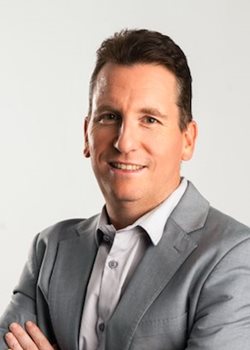
Top stories


FinanceA practical guide to building a better credit score in South Africa - Finance365
Finance365 2 hours




More news


Marketing & Media
Static exhibition spaces boring as interactive spaces resonate































Job done? Not necessarily. Sustainability needs to entrench far deeper than visual content, conferencing, catch phrases such as ‘go green’ and paper-based straws.
How can businesses and indeed commerce and industry live values of sustainability that entrench into its core product and core outcomes?
The answer may lie in value driven sustainability. Essentially, in order for business to remain viable, remain sustainable, and create growth – they need to create value. Value may take numerous forms – profit, cash flow, customer satisfaction, a customer pipeline, a value-added service – the list is a long one.
What holds true is that if the business fails to produce or create or preserve value for itself, for its clientele, stakeholders or investors, it will no longer remain a going concern and it will not survive. In simple terms, sustainability may not be this radical new concept that has taken the world by storm. Sustainability is a way that businesses create value, or need to evolve to create value, or need to adhere to in order to remain able to provide value for itself, and its pipeline into the foreseeable future.
The concept of a going concern is a well known one to accountants and auditors alike. Financial statements are prepared on the going concern basis – meaning prepared in a manner that presumes that assets, fairly valued, will produce their intended future economic benefits, debts will be able to be settled in the ordinary course of business and there is no immediate or near planned cessation if activities envisaged.
A key feature of any audit or assurance arrangement would be the verification thereof. Resultantly, a sustainable business is likely to be a going concern, and a business or entity that is not sustainable, is unlikely to be.
To remain sustainable then requires a forward-looking view as to how will the entity be able to continue to produce value in the foreseeable future. How may it need to adapt to retain or grow market share or prevent others from capturing its market share? How will it need to procure in the future or how will its operating model need to adopt going forward to attract new customers, or reform in the way the market requires it to?
This basic financial strategy – purpose driven value creation – is at a simplistic level – sustainable.
Sustainability then is not in itself a new concept. Its pointing to an analysis of what impact the environment, both natural, physical and financial are having and will have on the business, and what impact the business is having on its multi-dimensional environment. This is a well entrenched concept that has been elevated and incredibly well branded over the last few years under the overall sustainability umbrella.
Sustainability reporting, by extension, is disclosing both qualitatively and quantitatively the various factors that will contribute to, detract from or create sustainable value to stakeholders both now, and in the future. This could be akin to integrated reporting that shares these key features too. It’s no wonder then that the International Sustainability Standards Board (ISSB) acquired all the rights and intellectual property of the integrated reporting framework – because value driven reporting requires and integrated mindset.
Sustainability is here to stay. It always has been. Sustainability itself as a concept and as an ethos is arguably the key driver in any operation.
Sustainability is here to stay; let's continue to embrace it, report on it, and improve it. It is sustainable.